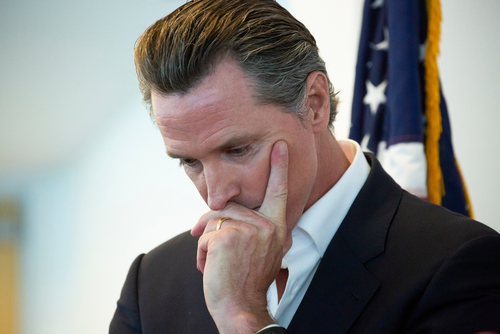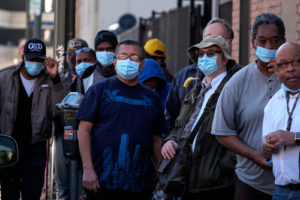
The state of California repealed its indoor mask requirement on Wednesday. However, mandates remain in place in some counties around the state.
On Thursday, California Gov. Gavin Newsom detailed the state’s plan to formally move to an endemic approach, in which residents will come to live with the coronavirus, rather than fight it.
BREAKING: @GavinNewsom's administration reveals first look at its strategy for dealing with the "next phase" of COVID-19.
It's called the SMARTER plan & will "use these different strategies in more precise and targeted ways" based on "the evolving conditions of the virus." ⬇️ pic.twitter.com/wgoOUCGf6m
— Emily Hoeven (@emily_hoeven) February 17, 2022
Framework and Initiatives
The state is the first to legally create a framework for a fading virus almost two years after a pandemic was proclaimed by the World Health Organization. It will forgo lockdowns and mask laws in favor of prevention and rapid response to outbreaks.
For the time being, the requirement that students wear masks at schools will stay in effect. Parents will be notified on February 28 as to when their children will be able to be remove them at school.
California’s indoor mask law was withdrawn on Wednesday, while mandates are still in effect in several counties in the state.
At a news conference held in Los Angeles on Thursday, Newsom said, “We have moved through the crisis period and are now in a phase where we will try to live with this virus.”
“There will be no definitive conclusion to this pandemic. There is no finish line in this game.”
Gov. Gavin Newsom says California will be the first state to shift to an “endemic” approach to the coronavirus pandemic. The plan unveiled Thursday emphasizes prevention and quick reactions to outbreaks over mandates.https://t.co/FcHpBkItHP
— The Associated Press (@AP) February 17, 2022
An endemic is a downgrade from a pandemic and is distinguished by its manageability, which is attributed to increased immunity.
State officials are focusing on the acronym SMARTER: Shots, Mask, Awareness, Readiness, Testing, Education, and Rx-as a way of strengthening COVID-19 treatment options.
Billions will be spent on detecting outbreaks or new strains as quickly as possible, increasing the number of healthcare professionals, stockpiling testing, and combating misinformation.
Other Blue States
According to Gov. Newsom, “We’re going to make sure Californians are secure, and we’re going to stay on top of this.”
Republicans were outspoken in their opposition to the idea, with State Republican Party Chairwoman Jessica Millan Patterson describing Newsom’s address as “an extra-large dish of word salad.”
Specifically, she suggested the governor “follow the example of other liberal states and cancel his state of emergency or abolish his school mask order.” Many emergency executive orders have been withdrawn, but hundreds of others remain in effect through Thursday.
Among the specific objectives set forth in Newsom’s plan are amassing 75 million masks, trying to establish an infrastructure capable of providing up to 200,000 vaccinations, 500,000 tests per day in the event of an outbreak, and hiring 3,000 additional healthcare workers in surge areas within three weeks.
Whenever a new variant is discovered, officials will attempt to determine within 30 days whether current tests, treatments, and inoculations are effective against it.
In addition, the plan calls for a groundbreaking study of the pandemic’s direct and indirect effects on both individuals and communities over the long term, which will be the nation’s first.
California became the first state to enact a lockdown in March 2020 and it was followed by the rest of the country.
















